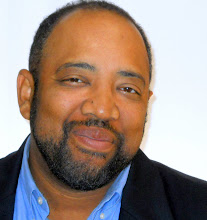Here, I am reminded of the phrase: you get what you pay for. The panel was free and the reporters did provide an hour's worth of excellent advice for the general public. But good PR counsel means crafting a specific strategy and story for a specific client and being able to take that story to the appropriate channels. And that strategy session takes more than an hour.
Besides, starting with media relations is putting the cart before the horse. At one point during the evening, an entrepreneur asked when was a good to time to engage in PR. I can't remember what the panel's response was, but I know it should have been, "What are you trying to do?"
When I am helping out an organization, I always start with the basics. You know that whole research, action, communication and evaluation thing. But if public relations is about relationships, how about starting with this?
1) How can I make things easier or less difficult for the organization?
2) How can I serve this organization to help them move forward?
3) What is “our” action plan?
4) How do we get the process going?
Sometimes these questions involve media relations, but most of the time it does not.
First, the panel didn't have a good idea of how PR actually helps media relations; but second is the misunderstanding that PR means only media relations. Today's PR is much more than that.
Not having a PR person on the panel is like having a panel on offensive football hosted by defensive players. They can tell you how they react to an offensive game play, but they can't tell you how to build a game plan that takes advantage of an offensive team's strengths and hides the team's weaknesses.
I know this analogy makes it sound like PR and the press have an adversarial role. I don't think this was always the case, but after listening to the panel and reading other sources, the veneer that the media used to employ when dealing with PR people has been scratched thin, and ugliness has shown through the exposed surfaces.
I sincerely hope that we have not entered a new era in PR and media relations, but change is upon our industry. As I've mentioned before, change makes people uncomfortable. And if you start messing with someone's livelihood, well, discomfort turns to anger.
Traditional media players understand the Web is putting them out of a job, and they also know that PR people are trying to disintermediate them by using the Web and social media tools. If I were them, I'd be pissed off too.




No comments:
Post a Comment